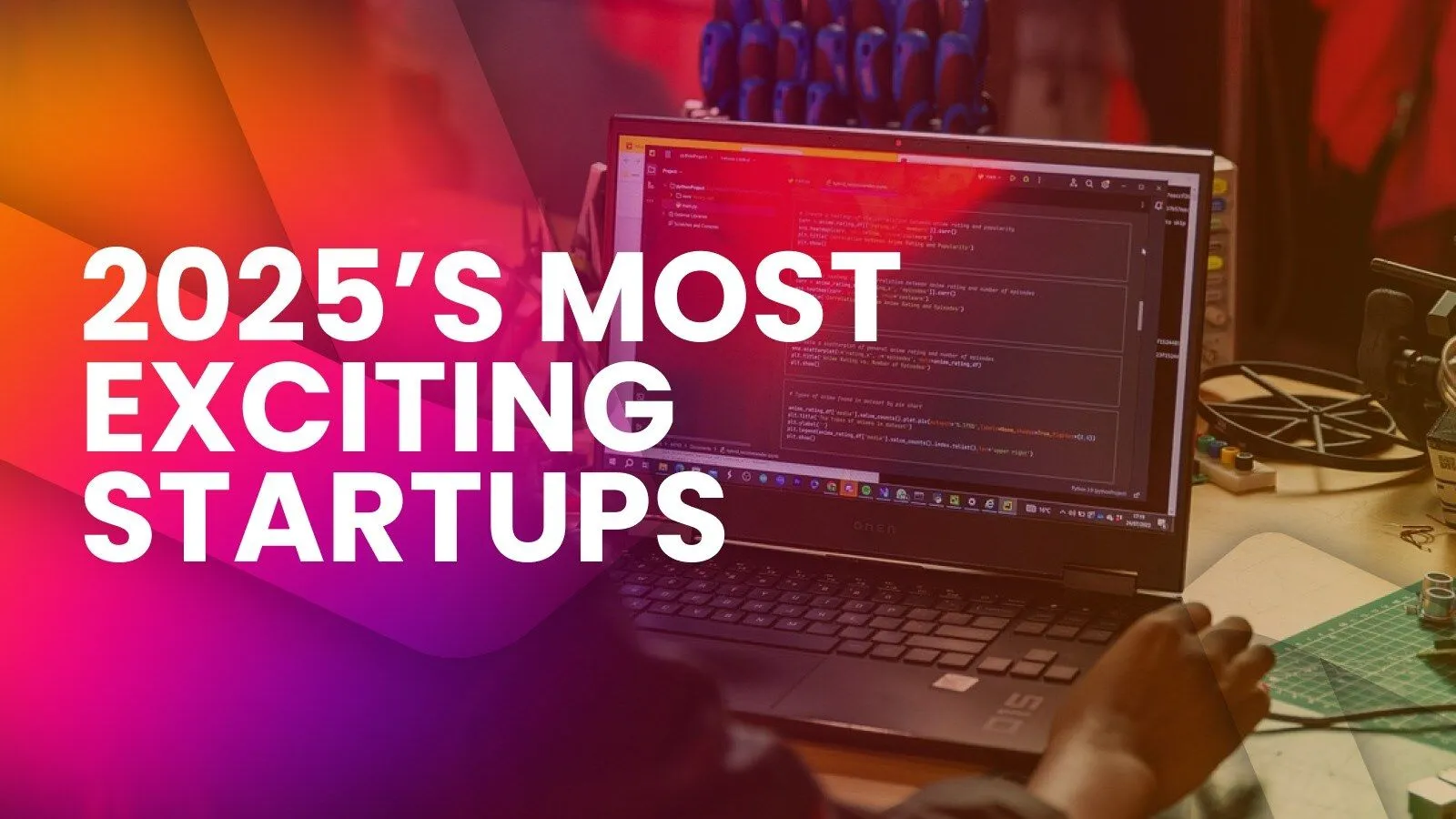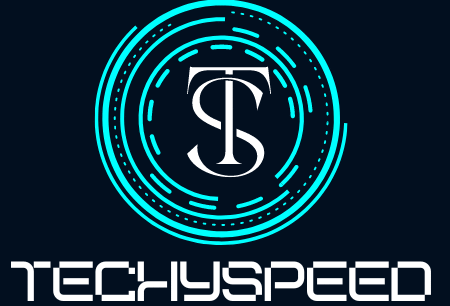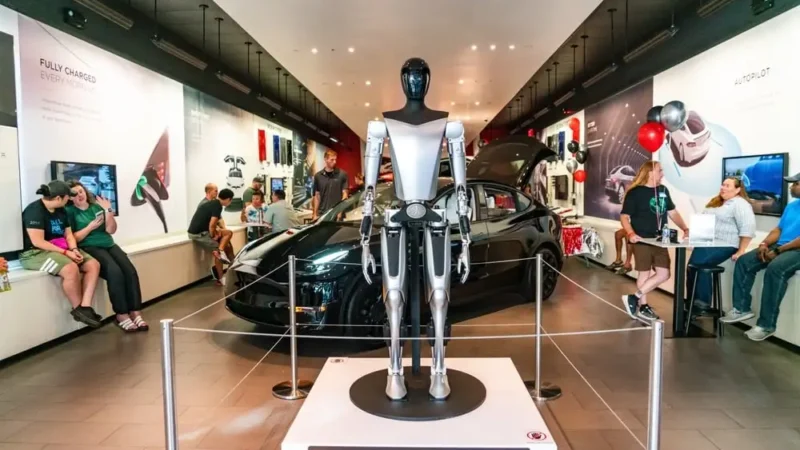Best Tech Startups of 2025 You Should Watch

In 2025, the world of tech startups has never looked more thrilling. Breakthroughs in artificial intelligence, deep tech, sustainability, and business tools are not just ideas—they are rapidly growing companies. Securing large rounds of funding, expanding globally, and changing how industries operate.
Whether you’re an investor scouting the next unicorn, a tech professional following trends. Also just someone interested in what’s coming next. Here are some of the most promising tech startups of 2025. These are companies making waves for innovation, scale, and potential to disrupt markets.
Best Tech Startups of 2025 You Should Watch Closely
1. European Powerhouse: Mistral (France)
One of the standout names in 2025 is Mistral, a French AI startup that has rapidly become one of the most valuable private AI firms in Europe. With recent funding led by the semiconductor giant ASML, Mistral secured about $1.5 billion in its latest round, pushing its valuation near $13.8 billion. Business Insider What makes Mistral special is its commitment to “open-weight” large language models. These are AI models where the architecture and weights are shared after training, though not full source code.
This approach strikes a balance between performance, community collaboration, and commercial viability. It’s being viewed as a serious contender against global AI firms, especially in regions that care about data sovereignty and transparent AI.
2. AI Infrastructure & Automation: Reflection AI (USA)
Reflection AI is another startup to watch closely. Backed by Nvidia and several big venture firms, it’s aiming for a valuation of $5.5 billion, up from its previous valuation in a short span.What they do is critical: automating coding tasks, enabling tools for developers that reduce repetitive work, and focusing on infrastructure that supports new AI applications.
In 2025, demand for tools that lower the barrier to building with AI has exploded, and Reflection AI is riding that wave. Their growth indicates how essential automation and developer-enablement will be in the coming years.
3. Scaling Up & Expanding Reach: Cohere (Canada / Europe Expansion)
Cohere, a Canadian AI startup, is also making significant moves in 2025. Valued at about $6.8 billion, it recently opened a new European office in Paris with ambitions to strengthen its presence in European markets. Their products focus on natural language processing, AI services, and solutions that emphasize data security and enterprise readiness.
With many European clients increasingly concerned about privacy and control over AI infrastructure, Cohere is positioning itself as an option that addresses those needs. This expansion is a signal that top-tier AI startups are not only focusing on model quality, but also regulatory and regional trust.
4. Nothing (UK): Style, Hardware & AI Ambitions
It’s not only AI-only firms making headlines. Nothing, the UK-based startup known for design-centric hardware, has raised $200 million in new funding, bringing its valuation to around $1.3 billion. Though it started with stylish phones, earbuds, and audio gear, Nothing is now signaling ambitions in “AI native” devices—hardware where AI is more deeply embedded: smarter sensors, perhaps AI-aided photography, or even robotics.
The uniqueness here is in combining hardware design, branding, and AI features in a way many consumers find approachable. For those who believe the next generation of gadgets will combine beautiful design with intelligence, Nothing is one to watch.
5. Emerging Players & Niche Innovators
While the big names grab headlines, several smaller or emerging startups are worth attention:
- Neysa (India): Focused on providing enterprise-grade GPU cloud infrastructure, AI-security, and managed services for organizations building generative AI applications. Neysa has raised tens of millions in funding in 2024-2025 and is building infrastructure that many AI companies depend on.
- Trupeer (USA): A newer startup specializing in automating business-video content and documentation. Their tool helps companies produce walkthroughs, onboarding videos, process guides etc., using AI. Though in early stage, growth has been strong and demand looks promising. Wikipedia
These kinds of startups often fly under the radar but are critical enablers: infrastructure, tools, and vertical solutions that allow bigger innovations to succeed.
6. What Makes These Startups Stand Out
There are several common traits that make these companies especially interesting:
- Strong funding rounds: Having enough capital allows them to scale, invest in R&D, and survive the competitive pressures of AI, regulation, market shifts.
- Focus on infrastructure / tools: It’s not just about end-user apps; many are building platforms or tools that other startups and enterprises depend on.
- Global expansion & regional sensitivity: Startups like Cohere and Mistral are explicitly expanding into markets concerned about trust, governance, and data privacy.
- AI + Hardware + Design: Some, like Nothing, are integrating AI into physical devices; others combine excellent design with functionality.
- Sustainability & ethical concerns: With increasing scrutiny on AI ethics, privacy, energy usage, etc., startups that address these proactively (through transparency, open-weight models, local/regional deployment) seem to win more trust and traction.
FAQs
Typically, it takes a combination of breakthrough technology, strong funding, smart leadership, and timing. Those who can reduce friction—whether in AI model deployment, hardware manufacturing, or enterprise adoption—and who listen to customer needs tend to scale faster. Also, regulatory awareness especially in AI/privacy is now essential
Major risks include regulatory pushback (especially in AI), hardware supply chain issues, competition from big tech, energy costs (for AI training, infrastructure), and failure to monetize or scale. Market sentiment also shifts fast—what’s hot now may be saturated in 12-18 months.
Aside from AI, sectors like health tech & biotech, sustainable tech (climate tech, green energy), fintech tailored for emerging markets, infrastructure & cloud tools, and deep tech like quantum and edge computing are very promising.
Conclusion
2025 is shaping up to be one of the most dynamic years yet for tech startups. Whether they are building the back-end infrastructures, pushing AI forward, merging design and hardware, or scaling tools that help other companies build, the startups above are among those rewriting what’s possible.
If you want to stay in the loop about funding updates, emerging startup stories, and deep profiles, TechySpeed.com is your go-to source. Stay tuned, because the next big thing might be right around the corner.




